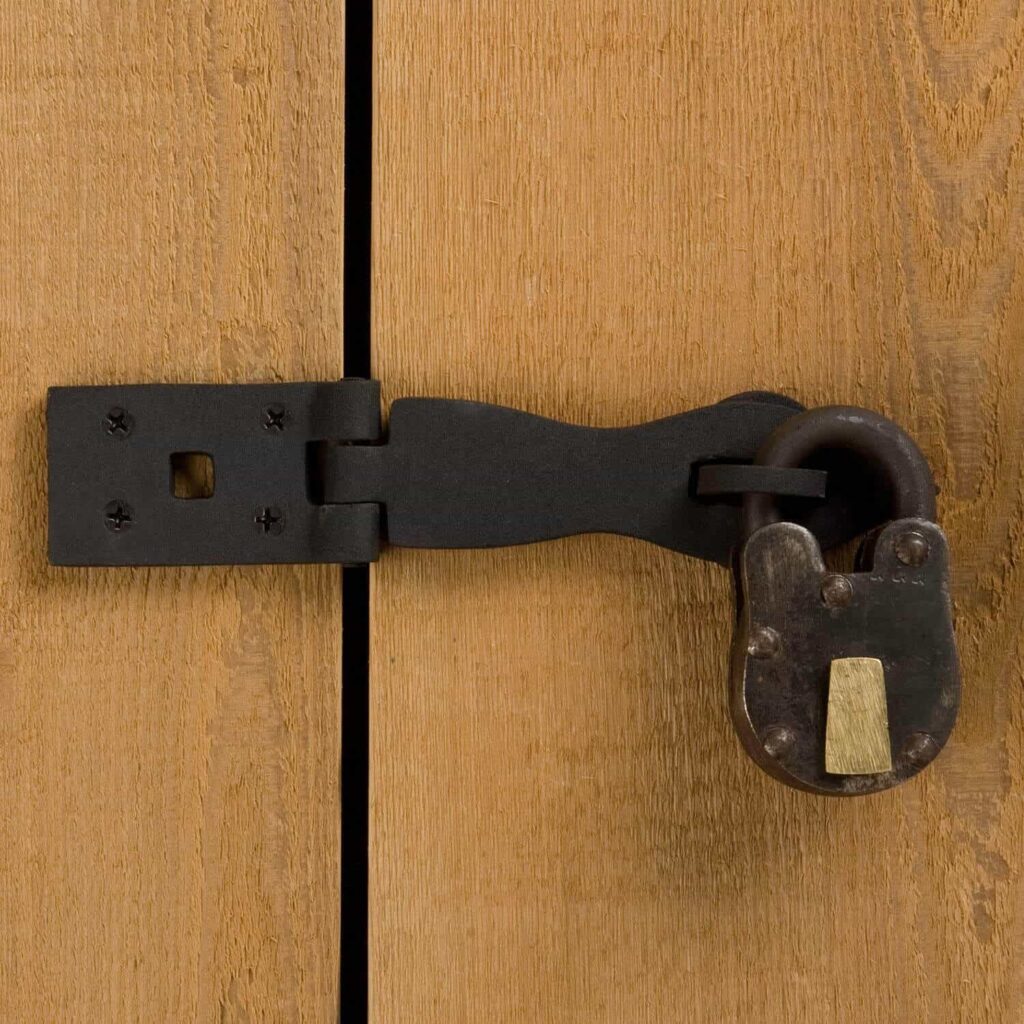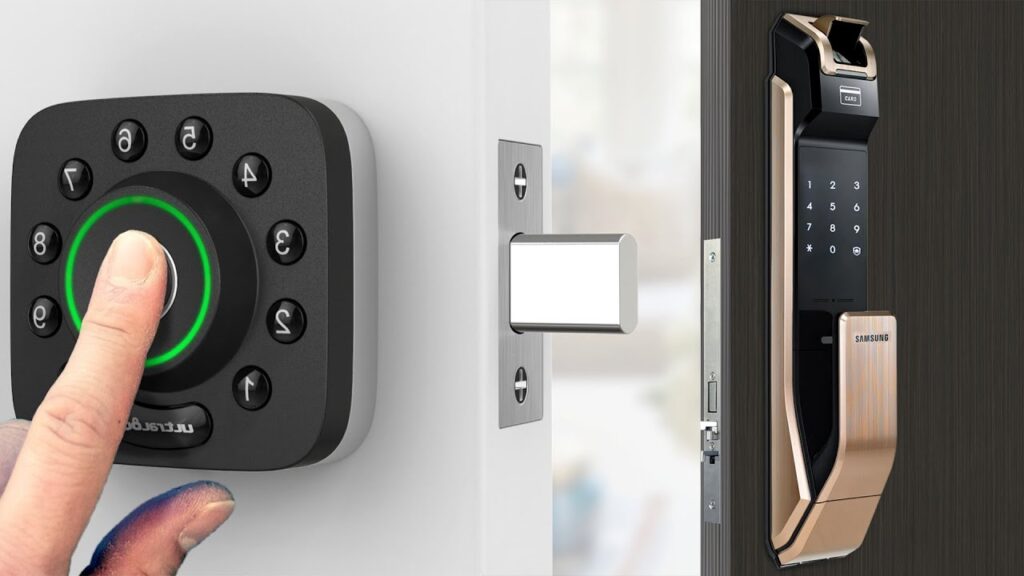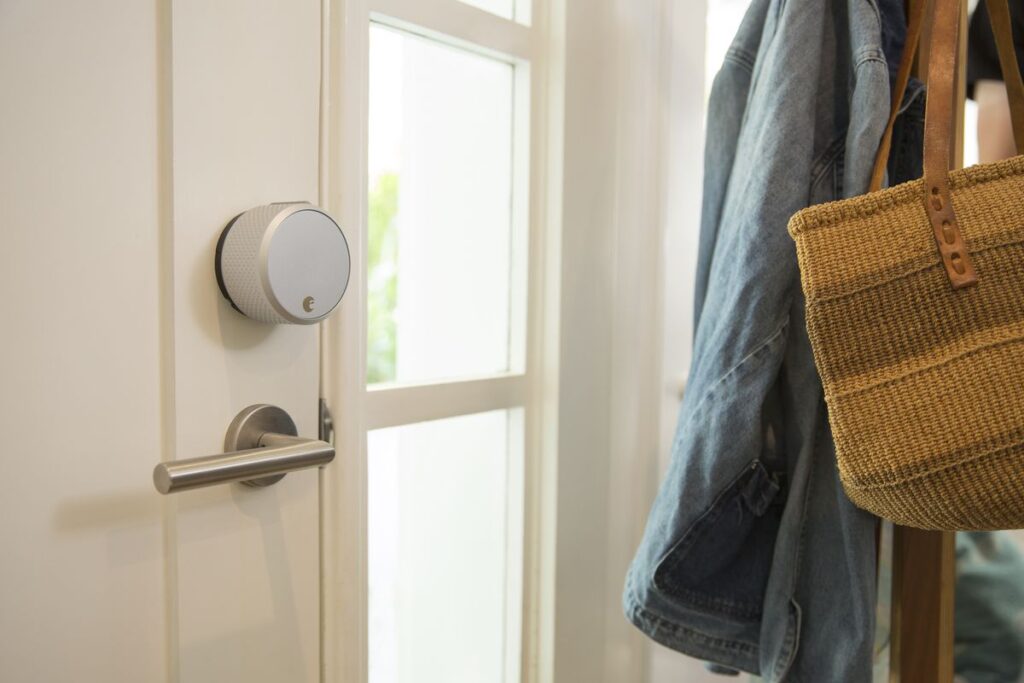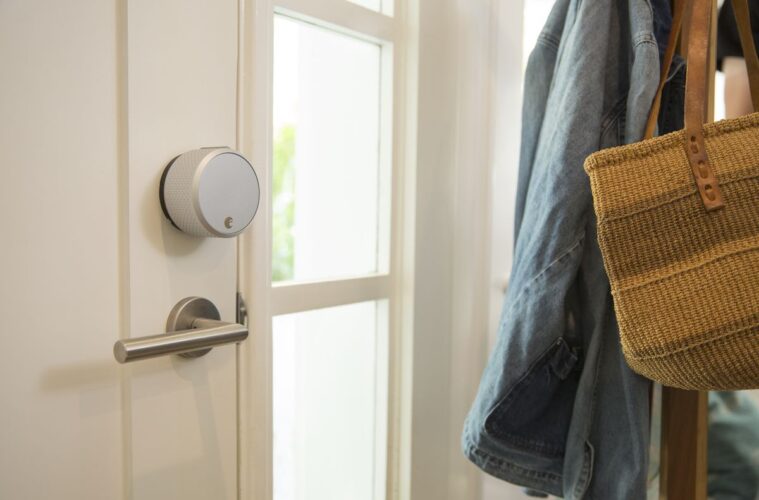Modern homeowners have plenty of options when it comes to protecting their properties. One of the recent developments in the home security industry is the popularization of smart locks. These locks, like other smart devices, are integrated with smartphones to provide residents with an extra level of convenience. Some consumers also believe the new locks are more secure than traditional locks, but professional opinions on the matter are still divided.
How Traditional Locks Work

source: signaturehardware.com
Most homeowners know that traditional locks are designed to be opened with a specific key. Not all of them realize that there are actually several types of traditional locking systems available from Action Lock Doc and other local locksmiths.
The most common kind of traditional lock is a pin-tumbler lock. Pin-tumbler locks feature spring-loaded pins built into cylinders inside the lock itself. When residents insert a key, it moves the pins up to lock or unlock the door.
Deadbolts are more secure than pin-tumbler locks. They come in many varieties, graded from one to three, according to the level of security they provide, with grade-one deadbolts being the most secure. They can be installed alongside pin-tumbler locks to provide an extra level of protection and can be operated using the same key or a separate key.
How Smart Locks Work

source: youtube.com
Smart locks work by connecting the home’s locks to residents’ smartphones. They can also be integrated with other smart home appliances and fixtures and paired with the home’s current deadbolt. Given the much higher price tag, it would be tempting to assume that smart locks must provide an advanced level of home security over traditional locks and deadbolts.
Smart locks can be hacked, allowing tech-savvy thieves to waltz right in through the front door. If a resident’s phone is stolen or lost and doesn’t have a passcode, anyone with a little knowledge of computer hacking can access the smart lock system. The best way to ensure the home is secure when using a smart lock is to use strong passwords and keep careful track of any phones or other devices connected to the system via WiFi or Bluetooth.
Which Option Is the Best?

source: curbed.com
There’s no one right answer to this seemingly obvious question. For families whose primary concern is home security, traditional locks combined with deadbolts and reinforced with strike plates provide an extra barrier to potential home invaders. Smart locks don’t come with these additional reinforcements. They can also be hacked to offer thieves with knowledge of computer-based home security systems easy access to the home.
The primary advantage of smart locks is their convenience. For families who value convenience over security and households that have other advanced security measures in place, this may outweigh the risks associated with hacking and lack of physical reinforcement. The fact that smart locks often offer remote access can also be a deciding factor for some homeowners.
The Bottom Line
Smart locks, and smart home technology more generally, are still relatively new. The technology has plenty of promise, but it can’t currently claim to offer increased security over traditional locks and deadbolts. Homeowners who want to ensure that their properties, families, and possessions are protected at all times are better off contacting a locksmith about high-security locks.



